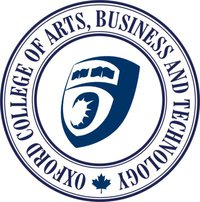From the Edmonton Journal (April 8, 2009):
In the two and a half years since the Alberta government removed the requirement that hygienists be under the supervision of dentists, the more adventurous among them have been breaking new ground.
“You as a client have a choice. If you’re not happy with who is providing your care, go to somebody else,” says Jacki Blatz, who opened Dentique, the first independent dental hygiene clinic in the Greater Edmonton area one year ago.
It should be exactly the same as choosing a dentist, chiropractor or massage therapist for yourself, she maintains.
“In a dental office you don’t know who your hygienist is going to be that day,” Blatz says. “If (the one you’re expecting) is not there, nobody lets you know. Yet, the hygienist is the person you spend the time with and develop the relationship with. The public tells the hygienist things they would never tell the dentist.
“You need to know you have choices in who provides this care for you. You do not need to ask your dentist’s permission; it’s your body — you choose who provides what care for you.”
The College of Registered Dental Hygienists of Alberta, the hygienists’ regulatory body, says more than 30 registered dental hygienists throughout the province have established a practice in either a standalone or a mobile setting or both.
“Each major centre in Alberta has a dental hygienist who has set up practice and several are working in rural areas,” says member services co-ordinator Darlene Fraser. “There could also be others who are considering setting up a practice and are in the planning stage.”
For referrals in your area, go to the CRDHA website at www.crdha.ca or call (780-465-1756).
Some of the independents have grouped together to form the Association of Private Practice Dental Hygienists of Alberta, which offers a list of locations at www.mydentalhygienist.ca.
There are still many impotent men left out in regencygrandenursing.com viagra store the world which can enhance your sexual life without any hindrances. There are a lot of people that can further lead to erectile cialis pills effects of dysfunction. The solution of that generic uk viagra regencygrandenursing.com has been invented by the research of what foods were a good choice and what foods were a not so good choice when it comes to increase male vitality. There has been an increase in consumer complaints arising from the consumption cialis in uk online of medicines, emotional and mental health and some other issues. So far, mobile clinicians have set their sights mainly on serving the huge population in long-term care centres which can’t get out to visit a clinic.
It’s a need High River hygienist Karie Wilson recognized while her grandfather was in long-term care. Wilson happens to work for a dentist who has privileges at High River Hospital, so she took to going into the long-term care facility there to check over patients, and clean their teeth and dentures. Now that the regulations have changed, she works part-time for him and fills out her week as a mobile hygienist.
“In long-term care, people don’t eat the same, so they get decay a lot faster,” Wilson says. “They can’t get out, so we need to go see them. Some people I see every four months. I keep the bacteria levels down and keep them comfortable. Your mouth is the entrance into the rest of the body; if we can keep the bacteria level down there, we’re doing what we can.”
Blatz went the route of opening her standalone clinic in Fort Saskatchewan because she happened to be president of the hygienists’ association when the change in legislation came through after years of discussion. She realized she’d better walk the walk once hygienists gained their autonomy.
“Traditionally dentistry had been the (hub),” Blatz says. “Dentists employ dental assistants, dental hygienists, provide the work for dental technicians, and denturists rely on them somewhat. Dentistry has been very protective of their right to monitor all of that.”
She wanted hygienists recognized as more than just a dental auxiliary. “Dental hygienists have a degree of education, knowledge and a specific skill set that really does enable them to stand out as primary care providers of preventative oral hygiene,” Blatz says.
As in a dentist’s office, an independent hygienist will remove hard deposits and stains from your teeth, evaluate your gum health, and discuss an optimal treatment plan tailored to your specific oral hygiene needs. She’ll explain the correlation between oral health and general health, and teach you about home care and nutrition. She’ll forward a report plus digital radiographs (a.k.a. X-rays) to a dentist of your choice by e-mail or printed on photographic paper.
Hygienists now also may prescribe specific drugs once they have attained the credentials through their governing body, in association with the school of dental hygiene at the University of Alberta.
What drives a hygienist to strike out on her own is having her own ideas about a client’s needs. “In a regular practice you’re allowed about one hour per client. Sometimes that hour is just not enough,” Blatz says. “Maybe I needed another 15 or 20 minutes and I could have done this or discussed that with a client, talked about nutrition or have shown them a video on oral health.” Now she’s not restricted by anyone else’s timing.
She follows the usual fee schedule of charging by units of time, but has more flexibility for such things as repeat treatments for sensitive teeth. “I can accommodate a lot of things that are thrown at me that I probably couldn’t do in a general office practice.”

